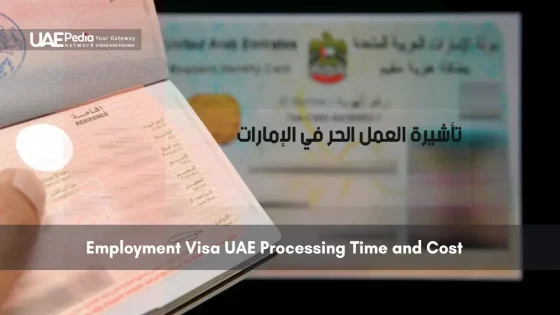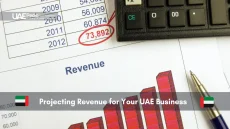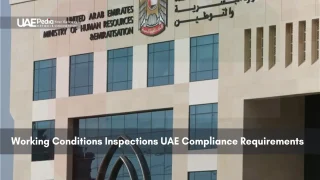Did you know 45+ specialized zones across the Emirates offer tailored incentives for companies meeting specific criteria? While the region’s tax-free reputation still shines, recent shifts in corporate regulations, including the introduction of a federal corporate tax in 2023, have created a more complex landscape for entrepreneurs.
The United Arab Emirates continues to attract global ventures with its unique blend of opportunity and structure. Qualifying activities—from tech startups in Dubai’s Silicon Oasis to trading firms in Abu Dhabi’s industrial hubs—enjoy distinct advantages under current laws. But navigating these benefits requires understanding evolving frameworks beyond the “zero tax” headlines.
Businesses operating in designated free zones often access 100% foreign ownership and customs duty exemptions. Yet even here, indirect taxes and sector-specific rules apply. The key lies in aligning your operations with precisely defined eligible sectors and compliance standards.
- Corporate tax incentives now depend on activity type, location, and strict adherence to new regulatory frameworks.
- Indirect taxes like VAT coexist with targeted exemptions
- Strategic business setup directly impacts long-term financial benefits
To benefit from the 0% corporate tax rate in UAE Free Zones, entities must qualify as a ‘Qualifying Free Zone Person’ by meeting specific criteria, including deriving qualifying income, maintaining adequate substance, and complying with transfer pricing rules. Failure to meet these conditions may result in the application of the standard 9% corporate tax rate. Ref.: “PwC. (2023). Updated UAE Corporate Tax Rules for Free Zones – Cabinet and Ministerial Decisions Release. PwC.” [!]
Navigating the UAE Tax Landscape in 2025
Picture this: you’re sipping karak chai in Dubai Marina, watching yachts glide by, while your earnings stay entirely yours—no income cuts. The UAE maintains its policy of no personal income tax; however, since 2018, a 5% Value Added Tax (VAT) on most goods and services has reshaped the financial landscape.
Implemented on January 1, 2018, the UAE’s Value Added Tax (VAT) system imposes a standard rate of 5% on most goods and services, marking a significant shift in the country’s fiscal policy aimed at diversifying revenue sources beyond oil. Ref.: “Ministry of Finance – United Arab Emirates. (n.d.). VAT – Ministry of Finance – United Arab Emirates. Ministry of Finance.” [!]
Personal Income and VAT Implications in the UAE
Individuals here enjoy salaries without federal deductions—a major draw for global talent. Yet that morning latte? It carries a VAT slice. Businesses face tighter rules: entities operating onshore are subject to a 9% corporate tax on profits exceeding AED 375,000, as per the new laws effective from June 1, 2023., while free zone firms navigate exemptions if they meet criteria.
Everyday Financial Impacts: VAT and Excise Taxes
Tourists and residents alike spot the 5% services fee on hotel stays or electronics. Health-focused excise taxes (100% on energy drinks) nudge consumer choices. For US expats, this creates a dance—reporting worldwide income to the IRS while enjoying local breaks.
The system rewards those who plan: a tech startup might structure as a free zone entity to reduce liabilities, while a family budgets for VAT-inclusive groceries. As one Dubai accountant puts it: “Our tax story isn’t zero—it’s strategic zeros.”
Compliance and Regulatory Framework: EmaraTax and the FTA
Imagine steering your business through Dubai’s bustling markets while staying aligned with local rules—like a seasoned captain navigating harbor currents. The Federal Tax Authority (FTA) acts as your compass here, guiding enterprises through registration, reporting, and audits since its establishment in 2016.
The EmaraTax platform, launched by the UAE’s Federal Tax Authority, offers a centralized digital solution for tax registration, filing, and payment, streamlining compliance processes for businesses and individuals across the country. Ref.: “Virtuzone. (2025). Your Guide To EmaraTax in the UAE. Virtuzone.” [!]
Federal Tax Authority (FTA): Roles and Responsibilities
This agency oversees three main streams: VAT (5% on most goods/services), excise duties (up to 100% on sugary drinks), and corporate taxation. Think of them as traffic controllers—ensuring smooth financial flows while enforcing conditions like proper record-keeping. Their EmaraTax portal simplifies filings, but missing deadlines? That’s like ignoring a speed camera on Sheikh Zayed Road.
Mandatory Registration and Reporting Obligations
First step: register via EmaraTax if your annual taxable supplies exceed AED 375,000 ($102k), to comply with VAT regulations. Free zone businesses and those with specific residency status have tailored compliance paths. Quarterly returns demand transaction records, invoices, and payment proofs—digitally stored for five years.
A café owner in Jumeirah, for instance, tracks every karak tea sale to offset input VAT. As the FTA’s director once noted: “Transparency isn’t optional—it’s how we build trust.” Follow these rules, and you’ll avoid penalties while contributing to the Emirates’ economic engine.
“read more: Business Mentor UAE Finding the Right Advisor“
Tax Exemptions for Qualifying Business Activities in UAE Free Zones
Think of setting up shop where desert sands meet innovation hubs—that’s the sweet spot for businesses eyeing qualifying free zone perks. To unlock these advantages, companies must align operations with three pillars: approved activities, economic substance, and compliance protocols.
Strategies for Success in UAE Free Zones
First, your core business must match the zone’s specialization—tech firms thrive in Dubai Internet City, while logistics players excel in Jebel Ali. Second, maintain physical offices and local staff to prove genuine operations. As one consultant puts it: “Paper companies get paper benefits.”
The corporate tax advantage is clear: a 0% rate on qualifying income for Free Zone entities that meet specific criteria, including limited mainland transactions. But watch the fine print—earning AED 375,000+ from UAE clients? You’ll need separate bookkeeping to preserve exemptions.
Free Zone entities must ensure that their non-qualifying revenue does not exceed the de minimis threshold specified by the UAE Ministry of Finance to maintain eligibility for the 0% corporate tax rate; surpassing this limit may subject the entire income to the standard tax rate. Ref.: “Ministry of Finance – United Arab Emirates. (2023). Cabinet Decision No. 100 of 2023 on Determining Qualifying Income for the Qualifying Free Zone Person. Ministry of Finance.” [!]
Industry-Specific Incentives and Benefits
Renewable energy startups and AI developers often receive added perks like discounted licenses or R&D grants. The government prioritizes these sectors through initiatives like the NextGenFDI program, which fast-tracks digital projects.
Take XYZ Robotics—they secured 50% office space discounts in Abu Dhabi’s Hub71 by developing smart city solutions. Such stories show how strategic alignment with qualifying free zone goals creates tangible rewards.
Ready to claim your slice? Start by consulting zone authorities about activity codes and audit requirements. With proper planning, your enterprise could join the ranks of tax-optimized innovators shaping the Emirates’ future.
Understanding Corporate and Indirect Taxes in the UAE
Let’s crunch numbers over virtual gahwa—your business’s financial brew needs the right mix of corporate and consumer levies. Whether you’re running a boutique design studio or a logistics hub, understanding these figures shapes your bottom line.
Corporate Tax Rates: Thresholds and Implications
Most companies benefit from a 0% corporate tax on profits up to AED 375,000 ($102k) annually; profits exceeding this threshold are taxed at a 9% rate.. Imagine a tech startup earning AED 500,000: they’d owe 9% of AED 125,000 (the amount exceeding the threshold), totaling AED 11,250. This tiered system rewards growth while easing entry for smaller players.
VAT and Excise Taxes: Hidden Costs of Business
Since 2018, that 5% charge on lattes and laptops isn’t going anywhere—but smart businesses reclaim input VAT on operational costs. A café owner paying AED 20,000 monthly for supplies could offset AED 1,000 against their collected sales tax. Meanwhile, energy drinks face 100% excise duties—a nudge toward healthier stock choices.
Key planning periods? Q1 filings (April), mid-year adjustments (July), and annual reconciliations (January). Miss an AED 375k revenue projection by December? Time to recalculate liabilities. As one Sharjah-based CFO notes: “Our spreadsheets have more plot twists than a Ramadan series—but they keep us compliant.”
Free zone perks change the game entirely—qualifying activities in specialized hubs often bypass corporate rates entirely. Just maintain those activity codes and transaction records like your favorite coffee loyalty card.
Optimizing Tax Strategies: Planning and Compliance
Picture yourself charting a route through Dubai’s financial district—your investment decisions need both local savvy and global awareness. Smart planners blend the Emirates’ incentives with international frameworks to create airtight strategies. Let’s explore how treaties and reporting practices can unlock hidden advantages.
“read more: Working Hours Regulations UAE Labor Law Guide“
Maximizing Benefits from Global Tax Treaties and Income Exclusions
The UAE has signed over 140 double taxation agreements (DTAs) with countries across Europe, Asia, Africa, and the Americas—golden tickets for businesses operating across borders. Pair these with tools like the Foreign Earned Income Exclusion (FEIE), which lets US expats exclude up to $126,500 (2024) of foreign earnings. One wealth manager puts it: “Treaty benefits aren’t automatic—they’re chess moves requiring precise positioning.”
Leveraging the UAE’s extensive network of over 140 Double Taxation Agreements can significantly reduce withholding taxes on cross-border income, enhancing the efficiency of international business operations and investment returns. Ref.: “Cleartax. (2025). Double Taxation Agreements in UAE: Core Principles and Key Provisions. Cleartax.” [!]
| Strategy | Benefit | Consideration |
|---|---|---|
| FEIE Claim | Excludes eligible income from US taxation | Physical presence test (330+ days abroad) |
| Global Tax Treaties | Reduces withholding taxes on dividends | Must meet “beneficial owner” criteria |
| Capital Structuring | Aligns investments with 0% corporate rates | Requires separate bookkeeping for exempt activities |
Compliance and Reporting Guidelines for US Expats in the UAE
American professionals in the United Arab face a dual reality: enjoying local perks while reporting worldwide income to the IRS. Three steps keep you compliant:
- File FBAR for accounts exceeding $10k collectively
- Claim the Foreign Earned Income Exclusion (FEIE) or Foreign Tax Credits—but not both for the same income, to avoid double taxation.
- Track 183-day rules to determine tax residency status
Smart management turns challenges into opportunities. Consider holding long-term capital in UAE entities while routing US-linked income through treaty-protected channels. As regulations evolve, this blend of local know-how and global awareness becomes your compass.
“read also: Annual Leave Entitlement UAE Calculation Methods“
Concluding Insights on UAE Tax Strategies for 2025
As the sun sets over Dubai’s skyline, savvy entrepreneurs know success lies in blending opportunity with preparation. Whether you’re steering a startup or scaling an enterprise, aligning your operations with the Emirates’ evolving framework ensures lasting advantages.
Regular check-ins with the Federal Tax Authority (FTA) ensure businesses stay ahead of deadlines, such as the March 31, 2025, grace period for updating tax records via EmaraTax. Keep crisp records for taxable income streams and permanent establishment details—it’s your shield during audits. Free zones remain golden tickets for companies focused on global trade, but remember: benefits hinge on sticking to approved activities.
Read More:
Residents and individuals should treat financial planning like navigating desert dunes—stay nimble, watch for shifting sands. Explore how strategic approaches can turn compliance into competitive edges, from deductible expenses to treaty networks.
Your next move? Treat this guide as a compass—not a map. Revisit your structure quarterly, consult local experts, and let the Emirates’ unique regime work for you. After all, the best strategies aren’t just about saving dirhams today—they’re about building tomorrow’s opportunities.
To unlock 0% corporate tax rates, free zone entities must meet "qualifying activity" criteria set by the Federal Tax Authority—like logistics, manufacturing, or tech development. They also need adequate substance (local offices, staff) and avoid mainland UAE passive income streams.
If your annual taxable income stays below AED 375,000, you’re exempt! This threshold shields startups and solopreneurs. But once profits cross that line, a 9% rate applies—so track revenue closely and consult the FTA’s compliance portal.
Most services (consulting, hospitality, events) charge 5% VAT unless clients are overseas. Export-related services? Zero-rated. Keep invoices VAT-labeled, file returns quarterly, and use FTA-approved software. Missing deadlines risks fines up to AED 20,000.
Only if transactions stay within the free zone or go abroad. Engaging UAE mainland clients without a branch? Those profits face standard 9% corporate tax. Hybrid structures often use separate mainland LLCs to isolate taxable/non-taxable income streams.
Dividends, capital gains from share sales, and intra-group loans often qualify. Foreign investors in UAE real estate enjoy no capital gains tax—but rental income counts. Always separate exempt vs. taxable streams in bookkeeping to avoid audit triggers.
The UAE’s 137+ treaties let you claim reduced withholding taxes on cross-border payments. Example: A Dubai tech firm paying royalties to a French IP owner could slash France’s 30% tax to 5%. File treaty applications early—approvals take 4-8 weeks.
Yes! Wealth management vehicles managing private assets (investments, real estate, yachts) for family members aren’t taxed. But if they start offering third-party services, that income becomes taxable. Structure carefully with licensed advisors.


















